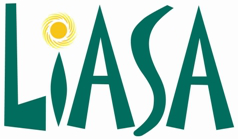Speaker
Prof.
Muxe Nkondo
(National Library of South Africa.)
Description
The structure of the argument
This paper is about the process of implementing a community-based education model as the initial phase of establishing a community library, a community museum or a community archive. First, I provide a historical, political and educational framework for understanding these three institutions as part of the ecocultural system. Although aspects of my argument are somewhat historical, the intention is not historical but systematic. Not only is it doubtful whether the historical approach can be successfully carried out in such a brief paper; it is not even necessary. At present, the histories of these institutions have been well presented by several scholars. In this short paper, I follow an approach which can be characterized as the analysis of the basic developmental and educational principles that should guide the transformation of these three cultural institutions.
In general, to understand my argument and to evaluate its cogency, it is necessary to know the challenges and policy imperatives which my argument proposes to address. To understand these challenges and policy imperatives, in turn, it is necessary to understand the social, economic and political context which forms the horizon of my inquiry.
Second, I suggest how it can be applied in a specific context. I open by presenting the context that led me to seek a new kind of memory institution, describe a community – wide education process for learning about the nature and structure of community libraries, museums and archives, and discuss the human resources development
program. Then I identify and highlight some key elements that can make the project successful.
b) Historical and Policy Context
In the last sixteen years, poor rural communities have made enormous efforts to transform their lives, achieve a measure of economic independence, and in the process search for a new instrument for their continued growth and development. Still poor and deprived of the means to a decent livelihood, these communities don’t have the capabilities to make use of cutting-edge methods to compete effectively in the knowledge economy into which South Africa is being drawn. Yet the cultural traditions that sustained them for thousands of years and defined them as an organic community are presently in jeopardy. To meet the challenges brought above by economic and technological development, I suggest ecolibraries, ecomuseums, and ecoarchives as the best vehicles to help these poor rural communities to understand and manage their everyday lives in the process of rapid and continuous change.
Primary author
Prof.
Muxe Nkondo
(National Library of South Africa.)

